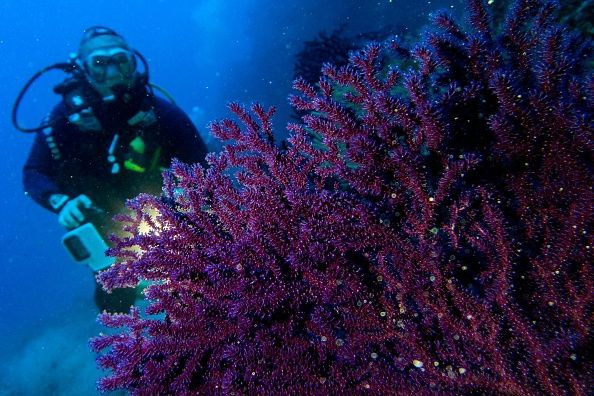Swimming In Oceans Can Increase Risk Of Skin Infection, Study Says
Swimming In Oceans Can Increase Risk Of Skin Infection, Study Says
Are you thinking about spending hours sunbathing on the sandy beach and swimming in the ocean? Well, think again. A group of researchers at the University of California have found that a mere 10 minutes of a swim in the ocean can alter the skin’s microbiome for a little while.
The lead author of the study Marisa Chattman Nielsen revealed that their data shows that "ocean water exposure can alter the diversity and composition of human skin microbiome". Nielsen said in other places such as lakes and rivers, resident bacteria are washed off, but in ocean swimming, bacteria gets deposited onto the skin. However, this is not a first-of-its kind study. Researchers had earlier established that long periods of swimming in salt water can cause skin chafing.
Nielsen and her team, according to PHYS ORG, detected ocean bacteria on all participants after air drying. They noted that some participants had ‘more ocean bacteria’. The research team employed nine volunteers who met the criteria of no sunscreen, occassional exposure to the ocean, no bathing with the next 12-hours and no antibiotics for six months. “The researchers swabbed the participants on the back of the calf before they entered the water and again after they had air dried completely, following a 10-minute swim and at six and 24 hours post swim.”
The researchers noted that the subjects had different communities from one another and similar bacteria communities on their skin after swimming. They saw that the change in microbiomes was temporary.
Recent research has shown that changes in microbiome can make the host vulnerable to infections, especially those with a poor immune system.
The researchers detected Vibrio species on the subjects’ skin. Nielsen explained that many bactria belonging to Vibrio genus are not pathogenic, but that the research shows that some harmful bacteia could stay on the skin.

“The fact that we recovered them on the skin after swimming demonstrates that pathogenic Vibrio species could potentially persist on the skin after swimming," Nielsen added.
The researchers also noted that Vibrio species was detected 10 times greater on the human skin compared to the fraction in the ocean water sample. This suggests that the bacteria has a ‘liking’ for human skin.
© Copyright IBTimes 2025. All rights reserved.





















